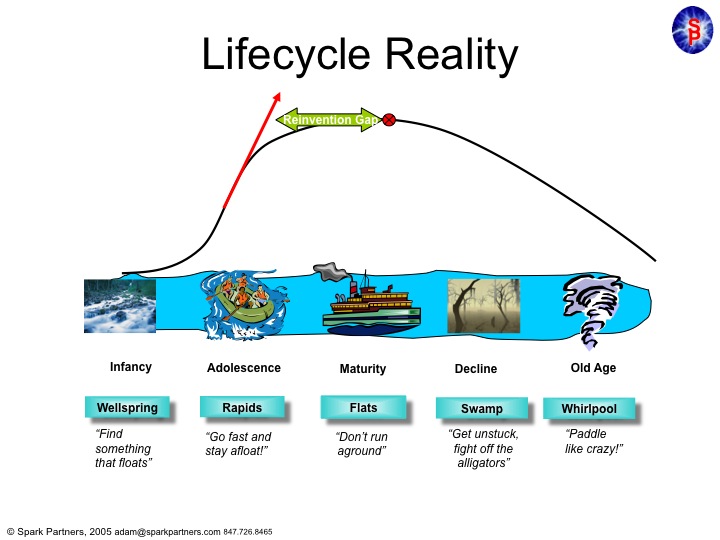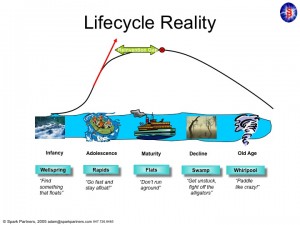
Herding Cats – 4 Leadership Lessons from Top Publicist Jeff Ballard
Charlie Sheen, Chandler Massey, Johnny Depp, Paula Abdul, Zac Efron, Rob Lowe, John Davidson, Dick van Patten… This is just a short, partial list of the people Jeff Ballard works with, and has worked with in some cases for nearly 30 years, as one of the top publicists in the entertainment industry.
Often CEOs will say that leading people is like herding cats. And too often, many leaders are unable to help some of their most talented managers reach full potential. Highly capable people can have insights that are hard to understand, and can be impatient to take action. In far too many cases organizations lose highly talented people because the leaders are unable to maintain long-term relationships and coach/assist those people productively. Or, even worse, the highly talented people are misunderstood and the organization pushes them out rather than figuring out how to get the most out of them.
Think of Steve Jobs. Fired by Apple, he later went on to great success at Pixar. And returned to save Apple from bankruptcy. Yet, few leaders – or organizations – would even have considered hiring him. Because they don’t know how to get the most of someone so highly talented.
As a publicist for some of the top actors in Los Angeles, Jeff Ballard has worked with, assisted the growth of, and become long-term friends with some very talented people. And layered on top of this is the impact of celebrity, and chronic media frenzies that can position and reposition these people in the public eye – as well as the eye of producers. What most CEOs would consider a once-in-a-decade set of issues for helping a developing high-performer move their career forward is literally daily activity for Jeff Ballard.
And through all of this he maintains some of the longest known relationships in what is widely considered one of the most fickle industries in America. In the fast changing entertainment industry people are often dropped like chattel as trends shift. Yet, Jeff Ballard’s clients stick with him for decades, and wax eloquently about how he has helped them to grow as people, and move their careers forward. While you’ve probably never heard of him (unless you are in the entertainment business,) Jeff Ballard has developed some of the sharpest leadership skills anywhere.
How does he do it? How does he help highly talented people to achieve even greater results year after year?
1 – Be helpful. Seriously. Don’t just hang around. Don’t wait to be asked to do something. Be helpful. Every interaction is an opportunity to help someone. Think about how you are creating opportunities to help people. Think about their capabilities and their goals and always be helpful.
Too often leaders take their relationships for granted. Or worse, they see people in their network as a route for the leader to accomplish his goals. They see others as someone who can help them. One of Jeff’s great skills as a leader is seeing his role as helping others. The more he helps others, the better things work out.
When Chandler Massey lost his phone, and he needed to do some interviews, Jeff ran to a store, bought a phone and a plan, and got the technology in Chandler’s hands in time for the interviews. This seemingly small thing was critical to the success of that event. But it demonstrated that by focusing on how to help, Jeff was willing to do what was necessary – whether big or small. And that builds long-lasting relationships. Chandler thanked Jeff by giving him his Emmy award.
Part and parcel with this, make sure you are only building relationships with clients, and your ecosystem, where you can add value. Too often leaders will take any business. Explore any relationship. But if you over-reach and take on a client, acquisition, merger, new product, new project, etc. where you are unable to really add value – unable to really help accomplish the goal – bad things will happen. So think ahead, and understand how you can be helpful.
2 – Add value fast. Every chance you can. Fix things – even things that may seem unimportant to you our outside your wheelhouse.
Dick van Patten once asked Jeff Ballard what to do about a broken sauna. Although far from his job, Jeff quickly took a look and then actually fixed the sauna. When producers are looking for actor A to be on a show, like Entertainment Tonight, for a variety of reasons this may not be a good fit. But rather than saying “no” – or worse, just letting requests go unanswered – Jeff will look quickly to understand the producer or media person’s needs and come up with a value added answer. Jeff constantly thinks about recommendations where all parts of his ecosystem could possibly help meet their needs.
When you constantly think about how to add value – and immediately – then people respect you. And they learn to trust you. When you are helping people reach their goals they listen to what you say. They are open to discuss alternative solutions. Far too often too many leaders think of themselves as “great deciders.” Or as the person responsible for making a “yes” or “no” answer and then moving on – leaving those around them to solve problems for themselves. But great leaders listen, and think about how to add value. Quickly.
3 – Separate talent from the person. Everyone is unique. Not everything a person does is on the direct path to greater success. But that doesn’t mean they aren’t talented – and able to continue to perform at superior levels despite something that didn’t go so well. Don’t be so foolish as to let the talent slip away because you are having issues with the person.
For actors, or sports celebrities, this can be easy to see. The media reports on something they say, or do, and it is easy to become negative about that individual. But, the next great performance (a movie, TV show, concert, CD, home run, winning goal, etc.) demonstrates that the person has talent. Leaders have the job of getting the most out of the talent – and not trying to manage the person – or worse, losing the talent because of “personal issues.”
Far too often organizations end up losing highly talented people because of the “black mark” syndrome. An up-and-comer does well for several years, but then something misses. For example, passionate effort to launch a new product or business creates conflict in the organization, and he shouts or otherwise acts out. HR is called in, and the manager is rebuked and forewarned — but worse he is now “marked” as problematic. All that talent is forgotten, undeveloped – or it simply goes to a competitor.
People are people. Some are easier to work with than others. But what’s important is whether they have talent, and whether as a leader you can bring out the most of that talent. Leaders don’t have the job of “changing people” (which far too often they really try to do,) but rather of helping people around them cultivate, develop and demonstrate their talents. If we focus on the talent we achieve far superior results while helping the person achieve their personal goals.
4 – Stay relevant, and keep those around you relevant. The world changes quickly. It is easy for leaders to expect those in their network – and especially their inner circle – to become complacent. To rest on their laurels of past success. Which all too quickly leads to problems. So it is critical that leaders constantly look around for what is emerging, and keep reminding their network of what is necessary to remain relevant. A pat on the back lasts one second, but helping someone stay relevant sustains their success far into the future.
Leaders can become so fixated on “performance” that they dehumanize those they coach. If, instead, they focus on providing guiding lights to people they can encourage them to adapt to change. They can help those they work with to stay current and growing. Too much time is spent reacting to what just happened, rather than figuring out how to achieve the long-term goal.
Jeff works constantly with his clients to understand what the market is seeking now, and will be seeking in the near future. Rather than reacting to events Jeff and his talented clients spends considerable time discussing what outcomes are desired, and whether or not a planned activity will lead to that outcome. By focusing on future relevancy Jeff leads clients to become proactive about achieving their goals. He helps them to make decisions today which are directed toward a future goal, rather than reacting to an historical event.
Over and again famous clients and top producers compliment Jeff Ballard for his honesty, integrity and loyalty. But these are not simply attributes. Many of us have these attributes. Rather, these are outcomes from Jeff Ballard’s long history of constantly helping people in his network, adding value quickly toward solving their problems, constantly focusing on bringing out the talent rather than chastising (or managing) the individual, and keeping everyone relevant and proactive rather than falling into patterns of reacting to something that already happened.
Jeff Ballard’s publicity firm is far from the largest in Los Angeles or New York. Yet, he helps clients who are famous, as well as new talent such as Conner Greene who you probably do not know. And no competitor can offer the long-term track record of performance Jeff has provided. Regularly clients who move to large publicity firms return to Jeff, seeking his counsel and advice in recognition of his leadership – generally absent from his competitors. Repeat business that all leaders seek, but don’t often achieve.
The next time you find yourself struggling to lead the people in your organization think of Jeff Ballard. His insights about leadership, rooted in the complex and difficult world of media publicity for celebrities, could help you be a far better leader in your organization.



